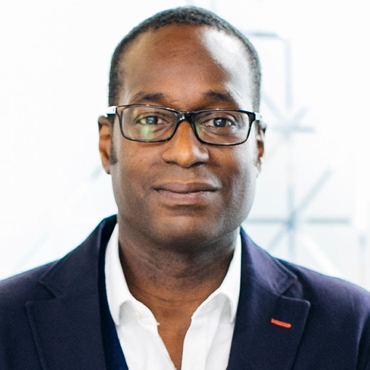Exclusive: CybSafe’s CEO on tackling VC pattern matching as a black business founder

When CybSafe CEO Oz Alashe MBE raised his Series B funding round last year, the ambitious London entrepreneur was one of only ten black British founders to have ever done so, or so he was told.
While Alashe has not been able to validate that claim, it gives an insight into the stark reality of the lack of diversity among start-up founders in London – a city renowned for its multiculturalism and excellent opportunities for entrepreneurs.
Of course, having a concept for a business and the enthusiasm to turn that vision into a reality is not limited to individuals of any particular gender or ethnicity.
Yet data from Extend Ventures tells us that merely 0.24 per cent of venture capital was given to teams composed of black entrepreneurs in the last decade.
“I don’t label myself as a black founder, and think it is of little relevance to most of the venture capital firms I speak with,” Alashe told City A.M. today.
However, it is important to recognise the truth that, in many situations, this identity does have a significant impact. But why is this the case?
“Investing in start-ups is a numbers game – a few will generate exceptional returns, some will
deliver modest results, and most will suffer an unfortunate demise,” he explained.
“Venture capitalists are the ones who have to try to make the right bets to achieve success.”
CybSafe CEO Oz Alashe
“To do this, they often try to identify patterns that are indicative of success. In many ways, these patterns guide their investment decisions.”
The kind of person that VCs invest in are the ones they deem to fit those patterns of success – but this is where bias can be introduced, Alashe continued.
“Maybe it is that an individual attended a specific institution such as Harvard, Yale, or Stanford. Each of these appear frequently in Silicon Valley start-ups as they fit the pattern for success. Think Mark Zuckerberg, Elon Musk, and Jeff Bezos. All three of these enormous figures slot into this pattern.”
Of course, VCs must be held accountable too, and they have a significant role to play in improving what a ‘pattern for success’ can look like, he noted.
“The current method is, perhaps unconsciously, perpetuating a status quo where certain populations are favoured more than others. The ‘norm’ for success is catering to founders who look like those who have succeeded in the past, and minority founders are, by definition, excluded from that ‘norm’.”
Impact of recession
As the economy continues to struggle, many investors will likely move away from taking risks by investing in businesses with a familiar model of success.
“This will be particularly concerning for minority founders, who are already underrepresented. Despite this reality, remaining resilient has always been a necessity,” Alashe stressed.
He added that black founders are not looking for investments solely because they are black; our goal is to
make a meaningful impact on the world by providing innovative solutions alongside brilliant
teams.
“Having a variety of backgrounds represented in any project can bring many benefits.”
“For instance, diversity encourages creative problem-solving as people with different
perspectives and experiences can work collaboratively.”
Alashe says he values the “immense contributions” of those from different backgrounds, races and cultures.
“Having a diverse business holds great potential for success. Companies with different people from various backgrounds, cultures, and skillsets are more likely to experience greater success than those lacking diversity in their workforce. In the same way businesses across the country have identified patterns for success in diverse teams, VCs need to identify,” he concluded.